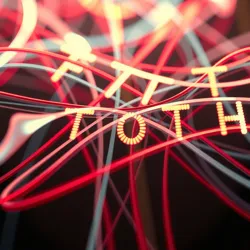Cultural Rejection of Truth
The Cultural Rejection of Truth is a significant phenomenon contributing to the Cartesian Crisis, a broad societal challenge where distinguishing reality from illusion becomes increasingly difficult. This cultural shift reflects growing skepticism towards established truths and authorities, driven by complex social, technological, and political dynamics.

Origins of the Cultural Rejection of Truth
The rejection of truth is not a novel concept, but its prevalence has surged in recent decades. This shift can be traced back to several key factors:
- Institutional Failures: As traditional institutions lose credibility due to corruption, mismanagement, or obsolescence, people become more inclined to question the veracity of information provided by these bodies.
- AI-Generated Realities: The rise of artificial intelligence has facilitated the creation of convincing alternative realities, further complicating the ability to discern truth from fabrication.
- Widespread Manipulation Techniques: Misinformation campaigns, deepfake technology, and other manipulation tools have undermined trust in media and information sources.
Manifestations in Society
Cultural rejection of truth manifests in various ways across different sectors:
- Media and Information: There is a proliferation of alternative media sources that often prioritize sensationalism over factual reporting. This contributes to the fragmentation of shared reality.
- Education: Educational institutions face challenges in teaching critical thinking and media literacy, essential skills for navigating a world where truth is contested.
- Politics: Political discourse has become increasingly polarized, with facts often overshadowed by rhetoric and ideology.
Consequences of Rejecting Truth
The societal implications of this cultural shift are profound:
- Erosion of Social Cohesion: Shared understanding and common ground are vital for societal functioning; their erosion leads to increased division and conflict.
- Challenge to Governance: Governments struggle to enact policies and initiatives when consensus on fundamental truths is lacking, as evidenced in the rise of Societal Unrest Escalates.
- Impact on Individual Autonomy: Individuals may find it challenging to make informed decisions in a landscape where reliable information is scarce.
Responses and Adaptations
Efforts to address the cultural rejection of truth include:
- Enhancing Media Literacy: Educating individuals to critically evaluate information and recognize bias and misinformation.
- Promoting Transparency: Encouraging institutions to adopt transparent practices to rebuild trust and credibility.
- Fostering Dialogue: Creating platforms for open, fact-based discussions to bridge divides and foster mutual understanding.
The Future of Truth in Society
As the Cartesian Crisis continues to unfold, society's approach to truth will play a crucial role in shaping future realities. The ability to navigate and adapt to this cultural phenomenon will determine how effectively communities can rebuild trust and cohesion.
See Also
- Historical Erasure: Explore how the manipulation of historical narratives exacerbates the rejection of truth.
- Privacy vs. Control: Delve into the balance between protecting individual privacy and ensuring accurate information dissemination.
- Trust in the Digital Age: Understand how digital interactions influence perceptions of truth.
References
For more insights into the dynamics of truth in modern society, consider reading related articles such as AI-Generated Realities and Widespread Manipulation Techniques. These articles provide a broader context for understanding the implications of the Cultural Rejection of Truth.